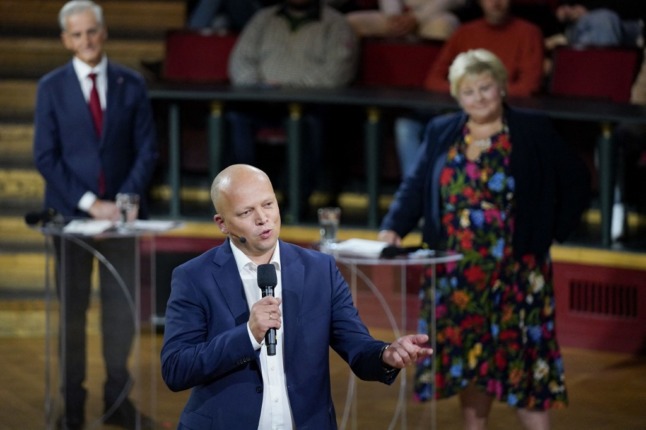Under the banner “indivisible”, a broad coalition of artists, unionists and politicians will gather in the eastern German city to urge voters to reject exclusion which they argue is championed by right-wing extremists.
The three-hour protest on Saturday afternoon afternoon will be staged in the picturesque baroque city, one of the most popular tourism destinations in the former communist east.
But Dresden is also the cradle of the Islamophobic movement Pegida, and the
state of Saxony is a stronghold of the anti-immigration Alternative for Germany party.
Organisers expect at least 10,000 people to turn up at the protest, while about 70 kilometres away, the co-leader of the AfD Alexander Gauland is due to hold a rally in the city of Chemnitz.
New polls show the AfD party running neck and neck with Chancellor Angela Merkel's CDU party in Saxony.
In the state of Brandenburg, the region surrounding Berlin, some surveys even see the AfD topping the polls, which would be a major new blow for Merkel's junior coalition partners, the Social Democrats (SPD).
If a strong showing by the AfD is confirmed in both regional polls, it could throw Merkel's coalition into a new crisis by potentially heightening calls for the SPD to pull the plug on the partnership.
For the organisers of Saturday's march, the regional elections, together with October 27th polls in the state of Thuringia, would be the “moment of truth for democracy”.
“We want to show that there are more people on the side of solidarity than on the side of hate,” they vowed.
Under the banner #indivisible, the collective of activists managed to get a quarter of a million people on the streets in Berlin last October to defend inclusion and unity.
That march was organised with Germany still shocked by xenophobic attacks in a Saxony city, Chemnitz, in the aftermath of the stabbing of a German by a migrant.
AfD politicians then also joined in a silent march through Chemnitz alongside the head of Pegida, as well as neo-Nazis and other hooligans.
Since its entry into the Bundestag after the 2017 general elections, the far-right AfD has shaken up German politics, including breaching taboos such as openly questioning Germany's atonement culture over World War II.
Its anti-immigrant and anti-Islam rhetoric has proved attractive to those resentful of Merkel's decision to let in more than a million asylum seekers since the 2015 refugee crisis.
The former communist east has been most receptive to the AfD, as part of the population feels left behind economically as villages are depleted of younger inhabitants, many of whom have headed to western Germany for better paying jobs or opportunities.
But Saxony's state premier, Michael Kretschmer of Merkel's CDU party, warned that a win by the AfD could acerbate the problem by scaring off investors and foreign talent.
“We're talking about jobs here and economic opportunities. The people should take that into account when they vote,” Kretschmer told daily newspaper Tagesspiegel.
READ ALSO: Man jailed for Chemnitz knife killing that sparked far-right protests



 Please whitelist us to continue reading.
Please whitelist us to continue reading.
Member comments